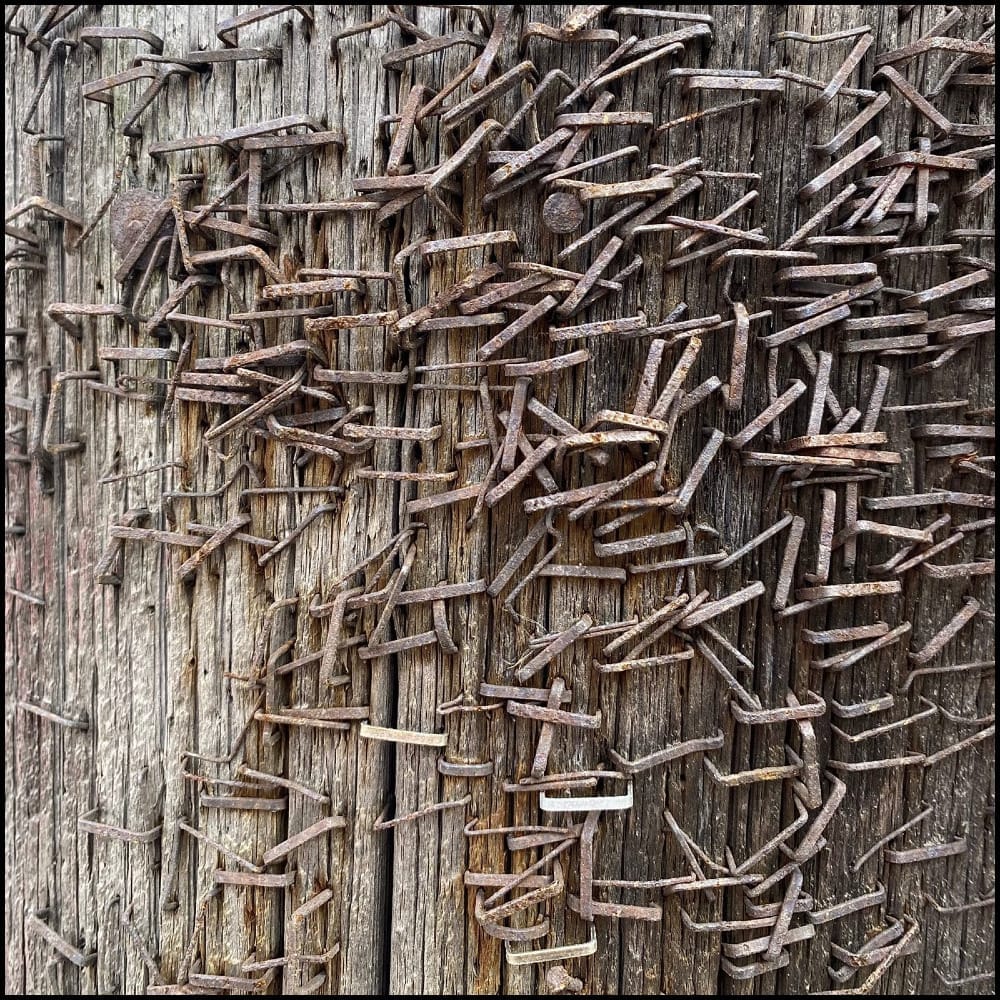under construction

"You don't win just because you're right.”
- Keeanga-Yamahtta Taylor
I've put a content filter on what's left of my social media feeds, blocking anything related to future Democratic presidential candidate Jon Stewart. Obviously I, too, crave that sense of smarmy self-satisfaction that comes from dunking on hapless “conservatives" or whatever, but it’s the same part of my brain that craves the empty calories of sugary breakfast cereal, and I know it’s not good for me.
It's been pointed out plainly enough before: whatever victory is obtained by "calling out hypocrisy" is essentially fictional, predicated as it is on the existence of a field of social intercourse in which intellectual honesty and ethical consistency are what carry the day. The whole construct appears a quaint anachronism at this point, of course, and nostalgia for it is a powerful drug, but it's never been much more than a idealist fantasy in any case. The core gesture of that whole mode of address is to interpellate a community of outraged liberals by giving them a pat on the back, to discursively constitute a constituency of ethical rationalists on the right side of history. In doing so it assures us that being on the right side of history is a subject position rather than a course of action. It doesn't require anything from us except right-mindedness and a sense of decorum.
If we're being honest, though, how much different is it for us, the "radicals"? Are we really any more grounded in material action? What's required of us beyond a different set of words, a vague belief in a different kind of future? What's the substance of our collectivity?
I try my best to be a good materialist, but it's not easy. The instinctual notion that righteous ideas constitute righteous worlds is romantic and seductive and intoxicating, and you’ve got to recognize how our addiction to it hampers our ability to chart strategic courses through the disaster of our present. You’ve got to constantly strive to move outside the empty promises of dead white men, to see the world in all its beautiful grit and vulgarity, to remember that history is what’s made by people with dirt under their fingernails.
There is so much righteous anger in the air right now, so much fear and anxiety and hopelessness, and I do my best to refuse the belief that alienation and apathy are active choices. Where I used to say bitterly to myself, “It’s not that people don’t know, it’s that they don’t care,” these days I try to lean into a more good-faith formulation that falls closer to: “It’s not that people don’t care, it’s that they don’t believe we can make a difference.” And why would they, after everything we’ve seen? There’s such a huge gap between our radical ambitions and the actual maps we’re offering to get there. I used to think this was a good problem to have: you make the road by walking, and all that. I still believe in that principle, of course, but let’s face it: those are nice words, but they sure aren’t sufficient to put food on tables, or stop police bullets, or halt deportations or evictions.
As one Dr. Fred Burrill, dearest comrade and staunch structuralist, puts it with characteristic elegance: “The discursive field has been lost to the fascists not because their arguments are more seductive but precisely because they control the material worlds out of which discourse emerges.”
Look, I’m not pretending to be some great strategist; I’m as confused and overwhelmed as anybody else. But I know I’m not the only one who’s feeling most of the time like our efforts amount to little more than political theatre, to aesthetics. Having the right arguments or holding the moral high ground aren’t enough. Bitterness and cynicism disguised as critical analysis aren’t enough. Relying on the universe to have a moral arc isn't enough. "We're going to have to try harder now."
The mix this time is a little shorter than usual, and I put the bulk of it together during the epic snowstorm so it’s accordingly pensive and wind-swept, though it should still at least keep you awake, I think.
It starts with LA-based composer Walt McClements, who on “Cloud Prints” works up a gentle tempest of accordion, horns, and organ, “a bit elegiac without feeling maudlin” as I put it on Bluesky (I'm on Bluesky!). His album, On a Painted Ocean, comes out in April, notably featuring some gorgeous cover artwork from one Erik Ruin, OG Just Seeds anarcho-printmaker and just a total sweetheart. Next it’s an excerpt from Barcelonian Nicolás Melmann’s forthcoming Música Aperta, the latest from the amazing Umor Rex and also out in April. I’ve left the full 11 minutes of “Música Aperta II” intact on the mix to let it fully unfurl, evolving from sparse bowed cymbal tones (I think) to an undulating, full-throated organ drone. This dissolves into an excerpt of “74|74,” a swirl of swooping violin and cello strings, field recordings and electronics from accomplished Chicago experimentalists Whitney Johnson and Lia Kohl. Their collaborative album from which this is drawn, For Translucence, comes out at the end of the month via Drag City.
Next we have another of stalwart Montrealer Mathieu Ball’s breathtaking electric guitar explorations, this one drawn from his second solo outing with The Garrote, the unassumingly titled Amplified Guitar II. I really can’t get enough of Mat’s guitar sound: richly metallic, grainy and tactile, apocalyptic without feeling hopeless, a bit violent without feeling malicious. Then it’s “Letter,” from Berlin guitar de-tuner Jules Reidy’s Ghost/Spirit LP, released in February. I’ve been following Reidy for a minute now, across several solo and collaborative records, and it feels a bit like a conversation that’s still unfolding – which is to say, I feel like I’m still working to fully get it, but I’m loving the work it’s taking. It’s heady in concept and intuitive in delivery, all weird tunings and big feelings. That’s followed up by a bit of an oldie from the mighty Oneohtrix Point Never, the title track from his 2011 LP Replica, running a stuttering descending piano line through a gauntlet of electronic distortions and echoing static.
After “Replica’s” abrupt finish, we’re caught by billows of stressed strings and organ, courtesy of Andrew Yong Moon Lee’s Holy Hum project. It’s an excerpt of “Faith in Doubt,” a gorgeous 17-minute haze and the centrepiece to the Brooklyn-based composer’s Let It Be Desire LP, which came out in 2023 and has recently become one of my favourites. Finally, things fade out with a selection from RECESSED DRAFTING, the latest from Robert AIki Aubrey Lowe – another Brooklynite, who also releases as Lichens and whose ethereal vocal-based compositions you might have heard on an arty film soundtrack sometime over the last decade (thanks to Robin for the tip!). "ON REVERIES" advances like the voice of a quiet siren, as buoyant and warm as it is uncannily unsettling.
• Mixcloud: under construction (mar 2025)
• MP3s: 25/03 - under construction.zip
NB: The zip file linked above contains the individual MP3s as well as a single 50-minute track of the whole mix.
Okay that's it! Thanks for reading, everyone, and especially to Anna for endless hospitality and Fred for editorial support.
xo, graham
